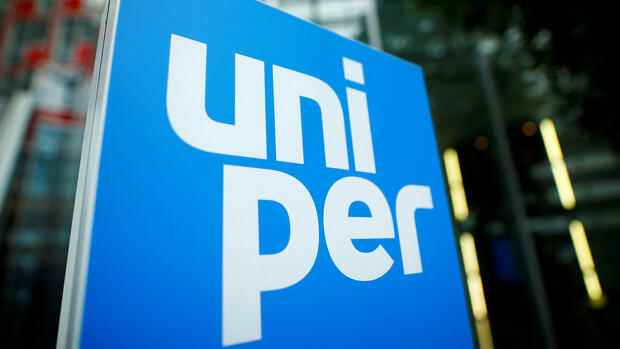Dusseldorf The Düsseldorf-based energy group Uniper reported a net loss of more than twelve billion euros for the first half of the year. The German subsidiary of the Finnish energy group Fortum posted adjusted earnings (EBIT) of minus 564 million euros. The company announced on Wednesday morning.
In the same period of the previous year, Uniper had presented adjusted earnings of EUR 580 million. Uniper expects a negative result for the year as a whole.
The high net loss is partly due to already known write-downs on Uniper’s Russia-related businesses – for example for the Baltic Sea gas pipeline Nord Stream 2 and power plants in Russia. The largest part, however, is related to gas supply cuts from Russia.
According to Uniper boss Klaus-Dieter Maubach, losses of 400 million euros had already built up by the end of June. To date, they have grown to 3.8 billion euros. Uniper is already reporting further foreseeable losses.
“There is not a single energy company in Germany that would not bring such a development to its knees,” says Maubach. The current situation has brought Uniper to the brink of insolvency, although the majority of the businesses are making profits. The losses from the gas replacement procurement are simply too high.
Uniper only expects an improvement in the coming years. CFO Tiina Tuomela said in a statement: “We expect earnings to improve in 2023 and are aiming to break even from 2024.”
Uniper shares fell by more than nine percent at the start of trading on Wednesday morning. Since the beginning of the year, the papers have lost a good 80 percent of their value.
Uniper is Germany’s largest gas importer and is currently in a precarious position: The company gets large parts of its gas from old contracts with the Russian gas giant Gazprom. But he hasn’t been delivering the contractually guaranteed gas quantities to Germany for months.
This situation causes Uniper to lose billions. Because the company has old contracts with gas customers. This means that Uniper has to buy the missing gas expensively on the market and sell it on to its own customers at low prices. These customers include more than 100 municipal utilities and industrial companies.
Uniper: State takes 30 percent
Because of the dramatic situation, the German federal government put together an aid package for Uniper in July, which will initially give the company 7.7 billion euros. In addition, the state is taking a 30 percent stake in the energy supplier. Uniper wants to have the stabilization package approved by the shareholders at an extraordinary general meeting in the fall. Even before that, the agreement with the federal government must be checked and approved at European level.
Since then, the situation has worsened again. Because now Gazprom is no longer even delivering 40 percent of the promised quantities through the Nord Stream 1 pipeline, as it did at the beginning of July, but only 20 percent. The losses for Uniper are all the greater.
As recently as July, Uniper had announced that it was currently paying up to a billion euros a month. Uniper boss Maubach had said that a total of six billion euros would be lost by the end of September.
This statement should no longer apply in view of the renewed gas throttling from Russia. According to Maubach, Uniper is currently making losses of more than 100 million euros a day. That would correspond to a minus of up to three billion per month, although the losses on some days are probably significantly lower.
Maubach said that against the background of the increasingly difficult framework conditions, Uniper had been working on the design and specification of the agreement with the federal government in the past few weeks.
>> Read also: That’s how dependent Gazprom is on Europe
Even if the federal government’s aid package has not yet been approved, Uniper has already received aid in the form of a credit line from KfW totaling nine billion euros. According to Maubach, Uniper has had to claim around five billion euros of this so far. Because the high gas prices also mean that the company has a very high need for liquidity.
The bill by the end of September is important because a gas levy will take effect from October, which is intended to relieve Uniper and other gas importers. Uniper and competing companies were able to submit an application to explain how high their loss is due to the lack of deliveries to Russia and will be reimbursed for 90 percent of these costs from October. To make this possible, the consumer gas price in Germany will increase by 2.419 cents per kilowatt hour.
A total of twelve companies have applied for compensation of 34 billion euros from the levy. A large part of this sum is likely to be attributable to Uniper alone.
In the future, Uniper wants to restructure its own gas portfolio. The group is currently bringing gas to Germany not only from Russia, but also from Norway, the Netherlands and Azerbaijan, as well as by ship as LNG.
According to Maubach, when the LNG terminal that is currently planned in Wilhelmshaven is ready, about a tenth of Germany’s annual consumption of LNG can be imported. The terminal is scheduled to open this winter.
More: Turkey could become Europe’s new gas hub – but can Erdogan be trusted?
